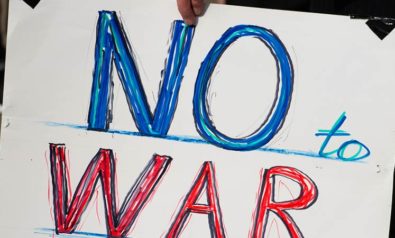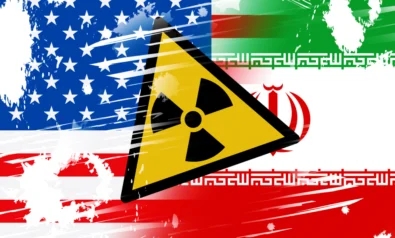Tensions have steadily risen in the Persian Gulf. It seems Iran and the US are on a collision course. Attacks on oil tankers, the shooting down of drones, aggressive rhetoric and Tehran’s decision to start enriching uranium again have led to a major crisis.
The UK impounded an Iranian oil tanker suspected of breaching EU sanctions against Syria. In response, Iran has seized two tankers, one sailing under the British flag and the other under Panama’s. Such is the state of affairs that Iran has been arresting spies accused of working for the CIA and sentencing some of them to death.
Analysts and commentators hold a wide range of views on the crisis. These views make sense only when we know some background.
The Story of the Iran Nuclear Deal
In 2015, Iran signed an agreement with the five permanent members of the United Nations Security Council and Germany, known as the P5+1. In return for the lifting of economic sanctions, Iran agreed not only to limit its nuclear activities, but also to allow in international inspectors. US President Donald Trump never liked the deal that his predecessor, Barack Obama, worked hard to negotiate and abandoned it in 2018.
Scroll down to read more on this 360° series
The Joint Comprehensive Plan of Action (JCPOA) — commonly known as the nuclear deal — made Iran reduce its 200,000 centrifuges to a mere 5,060 old and inefficient ones until 2026. This decrease would have destroyed Iran’s ability to enrich uranium to “weapons-grade” status. The Iranians also agreed to reduce their uranium stockpile by 98% to a paltry 300 kilograms. The JCPOA also blocked Iran’s pathway to weapons-grade plutonium.
The Obama administration saw the Iran nuclear deal as its crowning achievement, and the White House categorically declared that the “JCPOA cuts off all of Iran’s pathways to a nuclear weapon.” The administration claimed the deal made Israel safer and that the world supported it. Many analysts welcomed the deal, but some senators disagreed.
Led by Tom Cotton, they opposed the JCPOA, as did hardliners in Tehran. Ironically, the US and Iran were quietly collaborating against the Islamic State terrorist group in Syria and Iraq at this time. This did not matter to hardliners in both countries. Republicans took a more ideological view against Iran harking back to the “axis of evil” line of thinking of George W. Bush. As per this view, Iran is a destabilizing revolutionary power and its theocratic regime must be toppled to bring democracy and peace to the Middle East.
President Obama took a more pragmatic view. His foreign policy was characterized by the Asia Pivot, which meant refocusing American efforts on Asia instead of the Middle East. To do so, rapprochement with Iran was essential. It allowed the US to extricate itself from the Middle East. The Iran nuclear deal also put downward pressure on the price of oil and allowed Obama to put some daylight between the US and Saudi Arabia.
Once Trump got elected in 2016, the older ideological thinking returned. John Bolton, a confidante of Bush and a well-known hawk, is Trump’s national security adviser. In May 2018, President Trump pulled out of the JCPOA and has been turning the screws on Iran ever since. His reinstatement of crippling sanctions has pushed the Iranian economy into deep recession. Iran’s currency has crashed, incomes have declined and inflation has soared.
With its back to the wall, Iran has responded by passing the uranium enrichment cap set in the 2015 nuclear deal. Since Trump abandoned the JCPOA, Tehran has become increasingly frustrated with the remaining signatories to deliver economic benefits as promised by the agreement.
The US has threatened Iran with further “sanctions and isolation.” In response, the Iranians have promised to scale back commitments every 60 days unless the UK, China, France, Germany and Russia protect the country from American sanctions.
The Chinese foreign ministry blamed American “unilateral bullying” that it described as a “worsening tumor.” Russia also blamed the US and pledged to salvage the Iran deal. France is leading European efforts to save the JCPOA.
Such is the might of the US with its deep capital markets, the global reach of its law and the power of the dollar that hardly anyone is doing business with Iran. The Europeans have failed to fulfill their part of the deal out of fear of retribution from the US. European companies with American shareholders and large exports to the US cannot dare to displease Washington, DC. Even a rising giant like India with refineries designed for Iranian crude has ceased importing all oil from Iran.
Why Does the Iran Nuclear Deal Matter?
Over 60% of Iran’s population is under 30. About 22% of them between 15 and 29 are unemployed. Sanctions are hitting them the hardest. Protests have persisted since 2018 as jobs vanish, corruption persists and the economy nosedives. Tehran has responded with repression and CNN claims the regime has launched the “worst” crackdown in a decade. This has made hardliners like Bolton argue that the US must keep up the pressure until a combination of internal and external revolution brings about regime change. As many point out, Bolton is operating from the old Bush playbook for Iraq, of which he was one of the authors.
Most experts believe that Iran largely abided by JCPOA despite Trump pulling out of the deal. Iranians were hoping that the Europeans, Chinese, Russians and Indians would stand up to Washington and do business with them. This did not transpire. So, as per some analysts, the Iranians have decided to hit back. They believe Iran is using an aggressive gambit that includes attacks on oil tankers, shooting down American drones and ratcheting up the geopolitical temperature. The recent seizing of tankers and arresting of spies is part of that gambit, which puts upward pressure on the price of oil. Unsurprisingly, Iran denies being a provocateur and argues that it is acting merely in self-defense.
The most recent developments suggest that Iran is sending Washington a clear signal. The US-Iran conflict is expensive not only for Iran but also for the US and others. Like any deal, the JCPOA was imperfect, but it established an overdue détente in a highly volatile region. Trump decided this was not the best path forward for the US and pulled out of the nuclear deal. Now, it is back to confrontation à la the days after Iran’s 1979 Islamic Revolution.
With rising tensions, it remains to be seen if the JCPOA will stand. Iran’s nosediving economy might collapse completely. War could break out in the region. Additionally, a global power struggle might ensue. Russia and China could back Iran while Europe and India grudgingly side with the US. And in a world where the price of oil still matters, the collapse of the nuclear deal could tip a sluggish global economy into recession if not depression. The stakes could not be higher.
*[360° series is our signature feature where you get context and insights from around the world. Read more about the situation with Iran below.]
The views expressed in this article are the author’s own and do not necessarily reflect Fair Observer’s editorial policy.
For more than 10 years, Fair Observer has been free, fair and independent. No billionaire owns us, no advertisers control us. We are a reader-supported nonprofit. Unlike many other publications, we keep our content free for readers regardless of where they live or whether they can afford to pay. We have no paywalls and no ads.
In the post-truth era of fake news, echo chambers and filter bubbles, we publish a plurality of perspectives from around the world. Anyone can publish with us, but everyone goes through a rigorous editorial process. So, you get fact-checked, well-reasoned content instead of noise.
We publish 2,500+ voices from 90+ countries. We also conduct education and training programs on subjects ranging from digital media and journalism to writing and critical thinking. This doesn’t come cheap. Servers, editors, trainers and web developers cost money.
Please consider supporting us on a regular basis as a recurring donor or a sustaining member.
Support Fair Observer
We rely on your support for our independence, diversity and quality.
Will you support FO’s journalism?
We rely on your support for our independence, diversity and quality.














